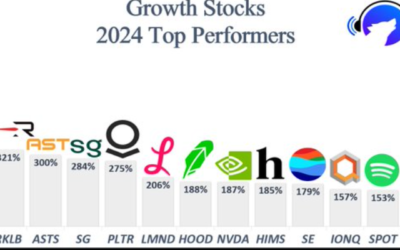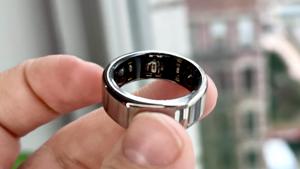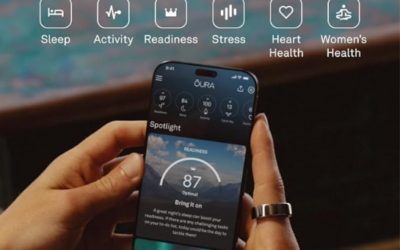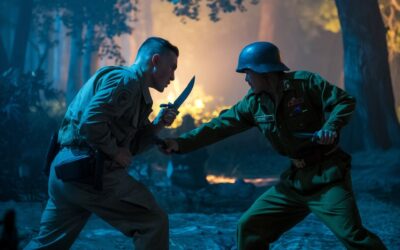In her New York Times bestseller, “Radical Remission: Surviving Cancer Against All Odds” Dr. Kelly A. Turner, founder of the Radical Remission Project, uncovers some of the factors that can lead to a spontaneous remission from cancer—even after conventional medicine has failed. 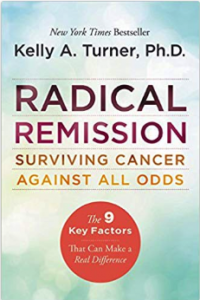
Before continuing, it's important to note a couple things. First, this is not about abandoning conventional medicine to treat cancer. If you've been diagnosed, please see a medical professional.
The second point of note is defining what is meant by the term 'radical remission'.
Dr Kelly Turner defines it as any cancer remission that is statistically unexpected, and those statistics vary depending on the cancer type, stage, and medical treatment received.
To be more specific, a radical remission occurs whenever:
• a person’s cancer goes away without using any conventional medicine; or
• a cancer patient tries conventional medicine, but the cancer does not go into remission, so he or she switches to alternative methods of healing, which do lead to a remission; or
• a cancer patient uses conventional medicine and alternative healing methods at the same time in order to outlive a statistically dire prognosis (i.e., any cancer with a less than 25 percent chance of five-year survival).
What prompted Dr Kelly A Turner to write this book comes from several key moments in her life. First was when her uncle was diagnosed with leukemia when she was three. His disease was a long, drawn-out process that lasted five years, and it cast a shadow over their family gatherings which made her young cousins incredibly afraid of that mysterious illness called cancer. He eventually died when Kelly was eight, which was impactful on it's own and even more so when she realized it left her nine-year-old cousin fatherless.
When Kelly was in grade school, one of her friends was diagnosed with stomach cancer. After two hard fought years, her sixteen year old friend died from the disease.
'It was during this time that I read Andrew Weil’s book, which changed the course of my life by introducing me to what Weil calls Spontaneous Healing and convincing me to continue toward my Ph.D., so I could study this fascinating topic in depth.'
When it came to writing her book, the motivation for it largely stemmed from her frustration with the medical community.
Here is a quote that captures some of her drive to pursue data about those that went into remission.
"The more I dug into this topic, the more frustrated I became. It turned out that no one was seriously investigating these cases, nor were they making any attempt to track them. What’s worse, most of the Radical Remission survivors I began talking to said that their doctors, while happy for them, often had no interest in hearing about what they had done to get better. The final straw for me, though, was when a few of the radical survivors told me that their doctors had actually asked them not to tell any of the other patients in the waiting room about their amazing recoveries. The reason? So as not to raise false hope."
Of course a medical professional wouldn't want to mislead their patients. But silencing those that have recovered can't be the absolute best course of action. Some do recover and their stories should be told to at least provide a crack of light for those given a seemingly dire diagnosis in their darkest time.
Dr Turner writes "After all, if we are trying to win the war on cancer, doesn’t it make sense to talk to those who have already won?"
In addition to her Harvard education, her research also comes from interviewing over a hundred people with radical remissions and analyzing over a thousand written cases on the topic.
She writes "I was surprised to find that two groups of people had been largely ignored in the thousand-plus cases published in medical journals."
The first group was the radical survivors. What was shocking about this group is that the vast majority of academic articles did not mention what the patients thought might have had led to their remissions.
Dr. Turner writes 'I found this very odd, given the fact that the survivors may have done something—even unwittingly—that helped to heal their cancer. Therefore, for my dissertation research, I decided to find and interview twenty people who had experienced Radical Remission and ask them: "Why do you think you healed?"
We will come back to what they did in a moment.
The second ignored group she researched was the alternative healers. She was surprised no one had studied how non-Western or alternative healers treat cancer. Many of the radical survivors she was hearing about had sought out healers from all corners of the world. It is for this reason she traveled throughout the globe and interviewed fifty non-Western, alternative healers about their approaches to cancer. For example, some had taken oddball supplements such as shark cartilage supplements.
After almost a year interviewing alternative cancer healers in the jungles, mountains, and cities of ten different countries, including the United States, China, Japan, New Zealand, Thailand, India, England, Zambia, Zimbabwe, and Brazil, she compiled her results and summarized them in her best selling book, 'Radical Remission: Surviving Cancer Against All Odds”.
She noticed that when she tabulated the frequency of each factor, that some of the 75 factors kept coming up again and again and in almost every interview.
Now we can get into the findings from both of these groups.
The core commonalities boiled down to these 9 common factors.
Here they are in no particular order.
• Radically changing your diet. For some this may not be too radical of a change.
For others, it could be very challenging but here are some of the dietary suggestions:
- greatly reducing or eliminating sugar, meat, dairy, and refined foods
- greatly increasing vegetable and fruit intake
- eating organic foods
- drinking filtered water.
• Taking control of your health
• Following your intuition
• Using herbs and supplements
• Releasing suppressed emotions
• Increasing positive emotions
• Embracing social support
• Deepening your spiritual connection
• Having strong reasons for living
The book goes into greater depth for each point in case you need more details.
Also, you might want to see and hear some of the interviews she's conducted with the doctors and patients that have first hand experience of radical remission.
Here are handful of the people she interviewed:
Nasha Winters, N.D.,is a licensed Naturopathic Doctor and a Fellow of the American Board of Naturopathic Oncology. She is a global healthcare authority in integrative cancer research and is a highly sought-after speaker who consults with physicians worldwide. She overcame stage four ovarian cancer at 19 – after being given only a few months to live – and continuously brings her nearly 30 years of personal and professional experience into the field of integrative oncology.
Michael Lerner, Ph.D., holds a B.A. from Harvard University and a Ph.D.from Yale University. He is the president and co-founder of Commonweal, where he works extensively with its Cancer Help Program, Healing Circles, and The New School at Commonweal. He was the recipient of a MacArthur Prize Fellowship for contributions to public health in 1983 and is author of Choices in Healing: Integrating the Best of Conventional and Complementary Therapies.
Mark Bricca, N.D.’s brother Barry died from Leukemia at only 15 years old. This tragedy, combined with Mark’s own experiences with allergies and asthma, led him to begin his studies at the National College of Natural Medicine in Portland, Oregon, first in naturopathic and then in Chinese medicine. Over the next eight years,he studied and practiced with leading authorities in these fields while specializing in cancer care. He currently practices at Bodhicitta Healing Arts in Portland, Oregon.
Lorenzo Cohen, Ph.D., Published author and Distinguished Professor in Clinical Cancer Prevention, leads a team of integrative medicine practices. He is the Richard E. Haynes Distinguished Professor in Clinical Cancer Prevention, Distinguished Clinical Professor at Fudan University Cancer Hospital, Shanghai, China,and the Director of the Integrative Medicine Program at The University of Texas MD Anderson Cancer Center. He is a founding member and past president of the International Society for Integrative Oncology. Currently,Dr. Cohen leads a team delivering clinical care and integrative medicine practices.
Linda L.Isaacs, M.D., is a graduate of Vanderbilt University School of Medicine and is certified by the American Board of Internal Medicine. She offers individualized nutritional protocols for patients with cancer and other illnesses, as well as protocols for health maintenance. She and her colleague, the late Dr. Nicholas Gonzalez, worked together for more than 20 years, publishing articles and case reports on their findings.She recently relocated her practice to Austin, Texas.
Liana Werner-Gray is a holistic cancer survivor and creator of The Earth Diet. She tours internationally with her nutrition findings and is a natural health advocate. After healing her own large, cancerous tumor in her lymphatic system (as well as curing her digestion and recurring weight issues) through the aid of a natural lifestyle, she created the Earth Diet. Her recipes and health tips have been published on Yahoo News, Mind Body Green, Huffington Post, and more. She also tours internationally, teaching and lecturing about her health and nutrition findings.
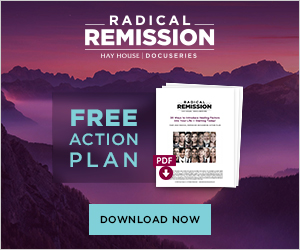 And there's many more in the docuseries.
And there's many more in the docuseries.
For access to the Radical Remission docuseries, the Free Action Plan PDF and interviews with 21 remarkable survivors, visit https://reprogrammingmind.com/Radical-Remission.

